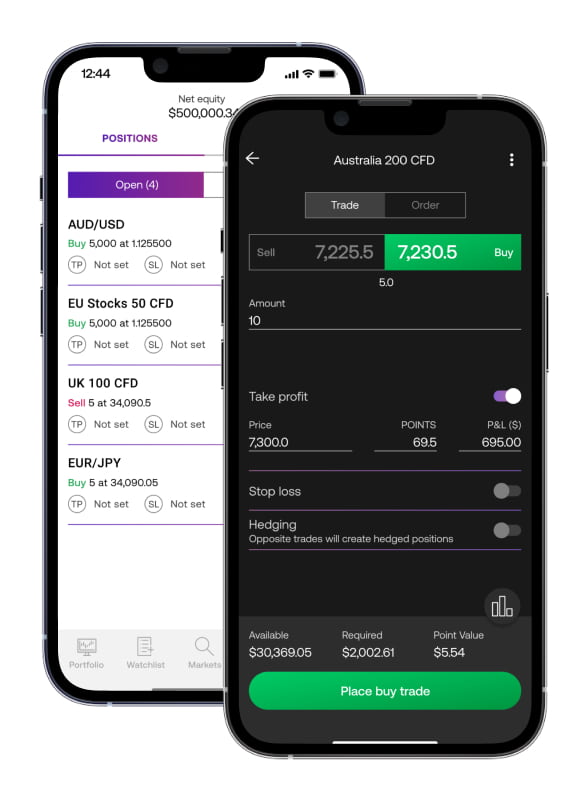Popular instruments
Crypto explained
Can I trade other cryptocurrencies with City Index?
Yes, you can trade a range of cryptocurrencies with City Index, such as Ethereum, Ripple and Litecoin, available at a margin rate of 50%. Find out more about the cryptocurrencies we offer.
Do I have to trade a whole Bitcoin?
No, one of the main benefits of Bitcoin CFDs is that you can trade fractional amounts and not an entire Bitcoin per transaction.
What are cryptocurrencies?
Cryptocurrencies are digital tokens based on blockchain technology that act as a virtual currency. Many cryptocurrencies are mined into existence through the ‘Proof of Work’ system, involving the solving of complicated mathematical puzzles by high-powered computing software, with a cryptocurrency token made available to the owner as a reward.
However, a newer system known as ‘Proof of Stake’ involves contributors staking their own cryptocurrency in exchange for a chance to validate new transactions, update the blockchain, and earn a reward. Ethereum, for example, is expected to move to the Proof of Stake model in 2022.
The majority of cryptocurrencies are decentralised, which means that they are not connected to or affected by an authority such as a government or central bank.









